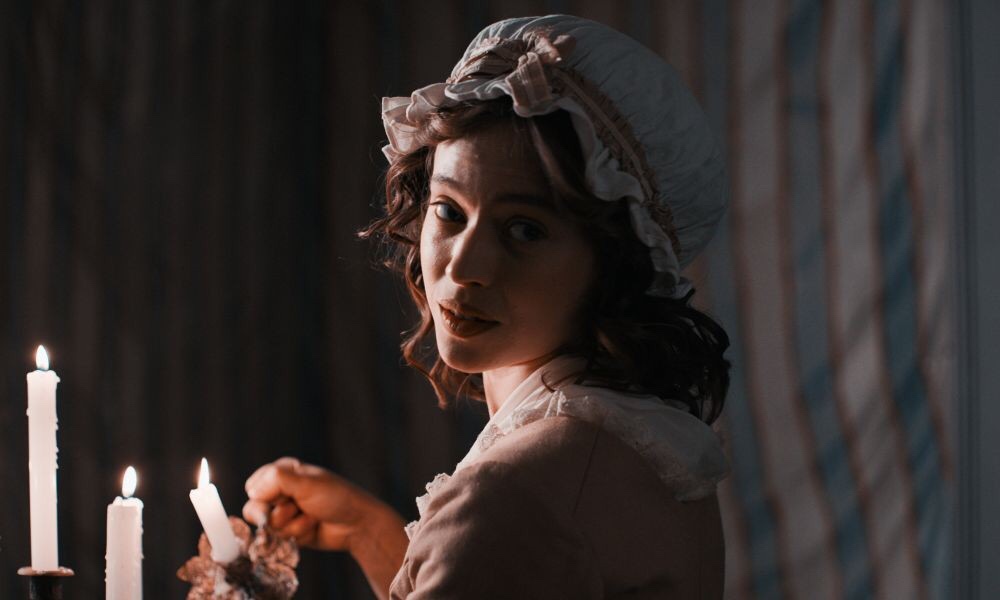THE BLACK BOOK OF FATHER DINIS
Music Box Home Entertainment
Reviewed for Shockya.com & BigAppleReviews.net linked from Rotten Tomatoes by: Harvey Karten
Director: Valeria Sarmento
Writer: Carlos Saboga, from the novel by Camilo Castelo Branco
Cast: Lou de Laâge, Stanislas Merhar, Niels Schneider, Jenna Thiam, David Caracol
Screened at: Critics’ link, NYC, 11/13/20
Opens: December 8, 2020

This is a costume drama whose slow, methodical pace and decorous set designs bring to fictional life the story centered on Laura (Lou de Laâge), a servant whose birth is other than what she and most others knew. The story, which opens in the year 1780 and proceeds toward the French Revolution of 1789 and the rule of Napoleon is based on a novel of the Portuguese writer Camilo Castelo Branco—whose “Mysteries of Lisbon” follows a jealous countess, a wealthy businessman, and a young orphaned boy across Portugal, France, Italy and Brazil where they connect with a variety of mysterious individuals. There is considerable travel in “The Black Book” as well, London and Paris, for example, as in “A Tale of Two Cities” and Italy before that country’s unification.
As Laura/Leila (that second name becomes clear later in the drama), Laâge is both narrator and a refined, perhaps distant, woman with a maternal love of young orphan Sebastían (played by are different ages by Tiago Varela da Silva and Vasco Varela da Silva). She is in the employ of a count who leaves the film in a hurry, having been poisoned by a mean cardinal. Promising the count to take care of the boy, his friend the Marquis Lusault (Niels Schneider), becomes Laura’s boss with benefits, as a fairly erotic love scene makes clear. When he marries a woman of his own noble stature, Suzanne de Montfort (Jenna Thiam), Laura is crushed. In a scene that made me exclaim “male fantasy,” Laura screams with heartbreak and falls to the ground.
The second part of the drama comes across almost like a separate film, punctuating the life of Cardinal Rufo (Stanislas Merhar) whose black servant Antonio (David Caracol) tags around with him and with Laura like Mike Pence with Donald Trump. (Mike: Invoke the 25th amendment and all is forgiven.) Valeria Sarmento, the Chilean director based in France since 1974, is fond of the 18th century, as he “Lines of Wellington” considers the defeat of French troops in 1810 by an Anglo Portuguese army under Wellington. While there are no grand battles here, the melodrama consists of just a few assassinations including those of two counts, a near-murder of Napoleon himself, and true to the century’s love of tuberculosis, a near death from that disease and the almost campy way that Laura faints dead away whenever her emotions get the better of her rationality.
The film is a special treat for those who like period drama with its cool costumes (authentically mid- to late-18th century I’m guessing) and the use of candlelight, the kind that might get your imagination running as you read some Harlequin romances. Lou de Laâge anchors the movie quite effectively, making some of us wonder whether the erotic trysts of the time period are preferable to our own century’s passionless hookups.
In French with English titles.
103 minutes. © 2020 by Harvey Karten, Member, New York Film Critics Online
Story – B+
Acting – A-
Technical – B+
Overall – B+
